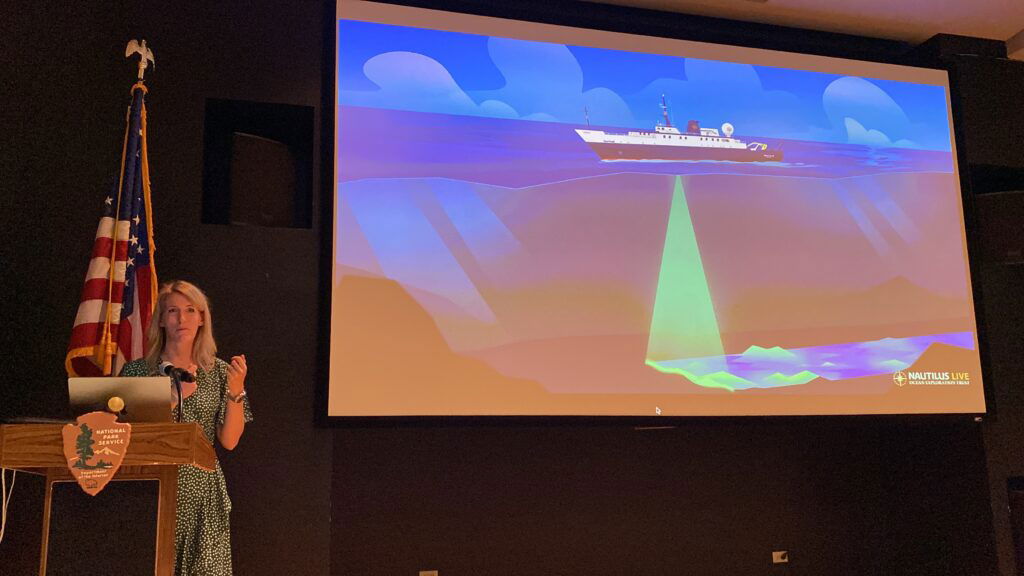AT a recent presentation conducted by the Ocean Exploration Trust, Daniel Wagner, the organization’s chief scientist, and Megan Cook, director of education and outreach, announced that the exploration vessel Nautilus will be in Marianas waters in May and June to research understudied ecosystems thousands of feet beneath the surface.
According to the nonprofit organization’s website, it conducts undersea explorations to seek out “new discoveries in the fields of geology, biology, maritime history, archaeology, and chemistry.”
From May 7 to 29, the Nautilus, a vessel over 200 feet long, will be in the western ocean off the Marianas, studying active undersea volcanoes, Wagner said.
From June 2 to 28, it will be studying mud volcanoes off the Marianas’ eastern shore.
Wagner said there are two tectonic plates moving in the Marianas, with one going under the other. They “create some really extraordinary types of habitats,” he added.
Wagner said because most of the ocean is unexplored and under documented, he expects the explorations to yield discoveries across different scientific fields, including biology, chemistry, archaeology, and more.
“Our mission is really about basic exploration,” he said, “going to the places no one has ever seen before, collecting as much information as we can and sharing it in real time for everyone to join us.”
He said the data collected could have implications for understanding climate change, global cycles, as well as for managing fisheries and conservation areas.
“Much like space exploration, ocean exploration is one of those few things we have where really no matter where you’re from, no matter how old you are, no matter what you think about it, we can all kind of come together and just be completely amazed,” Wagner said.
To conduct their research, the Nautilus will deploy Hercules, a submersible remotely operated vehicle or ROV, Cook said. Other ROVs will measure the ecosystems at various depths or in areas where Hercules will not be deployed. The Nautilus will also use acoustic sonar to measure and map the ocean floor.
Cook said that Hercules will be remotely operated by a crew inside the Nautilus, and can reach depths of 4,000m or “40 football fields stacked end to end to end.”
At that depth, because no sunlight is able to pierce the seafloor, Hercules has a variety of technology to light the areas, collect samples, and transmit video.
“It’s a little bit like hiking with a flashlight,” Cook said. “You are in this world of darkness, and we bring light so we can see, and the ocean can reveal things. And the pictures are truly spectacular.”
Cook said Nautilus is equipped with a stabilized satellite system that provides internet access aboard the vessel. The crew can “transmit and share everything happening on board live with you and viewers all over the world.”
“We broadcast 24 hours a day from Nautilus,” Cook said. “So you’ll be able to tune in and pick your own deep sea TV channels off the website, pick which of the camera views you’d like to see and talk with the team, send in your questions and be answered live by the folks aboard the ship.”
The organization’s website is nautiluslive.org/.
There are also online opportunities for classrooms and community organizations to virtually meet with the Nautilus crew. Marianas residents can schedule live “ship-to-shore” interactions or attend virtual live events.
Additionally, Cook said at-sea programs are available for educators and students from the Marianas to join future exploration events. The organization uses a broad definition of educator to include classroom teachers as well as storytellers, museum interpreters, artists, and “educators of any discipline.”
With the Nautilus Science and Engineering Internship program, the organization will train and provide “real world experience” to college, undergraduate, and graduate students.
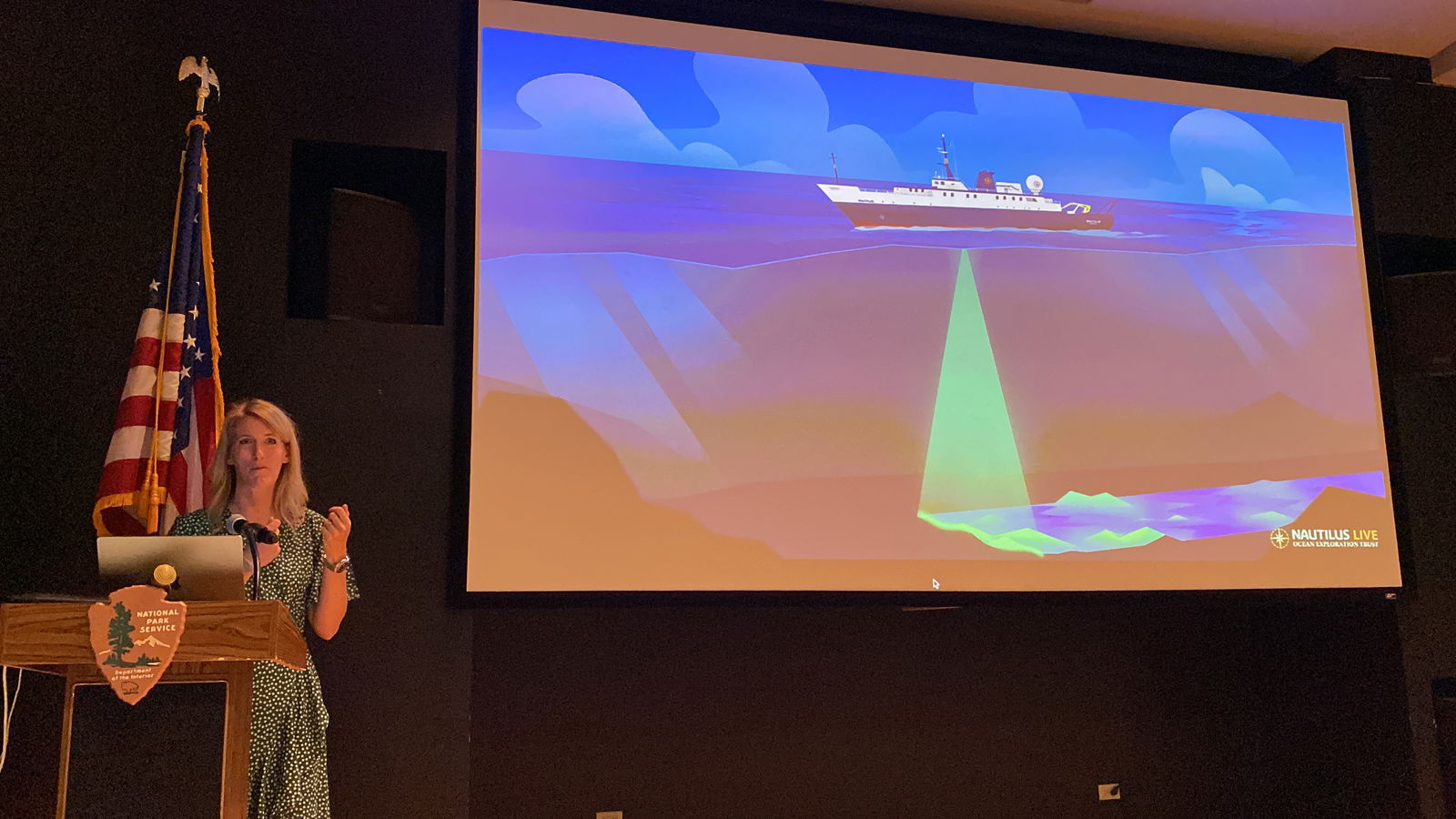
Megan Cook, Ocean Exploration Trust’s education and outreach director, talks about the technology Exploration Vessel Nautilus uses to map the ocean floor.
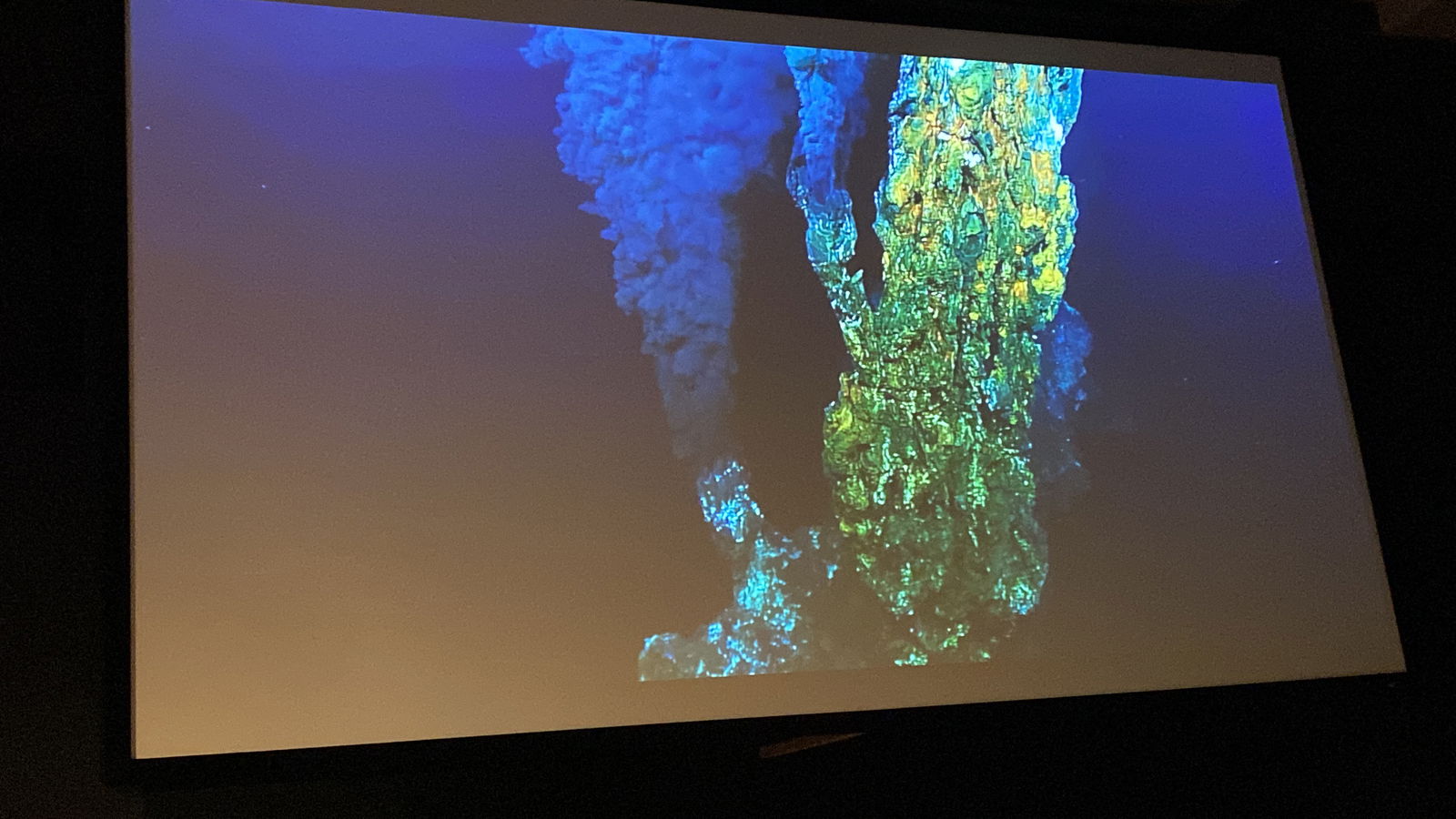
In May, the Nautilus will be in the waters well off the Marianas to study undersea active hydrothermal vents, such as this one.
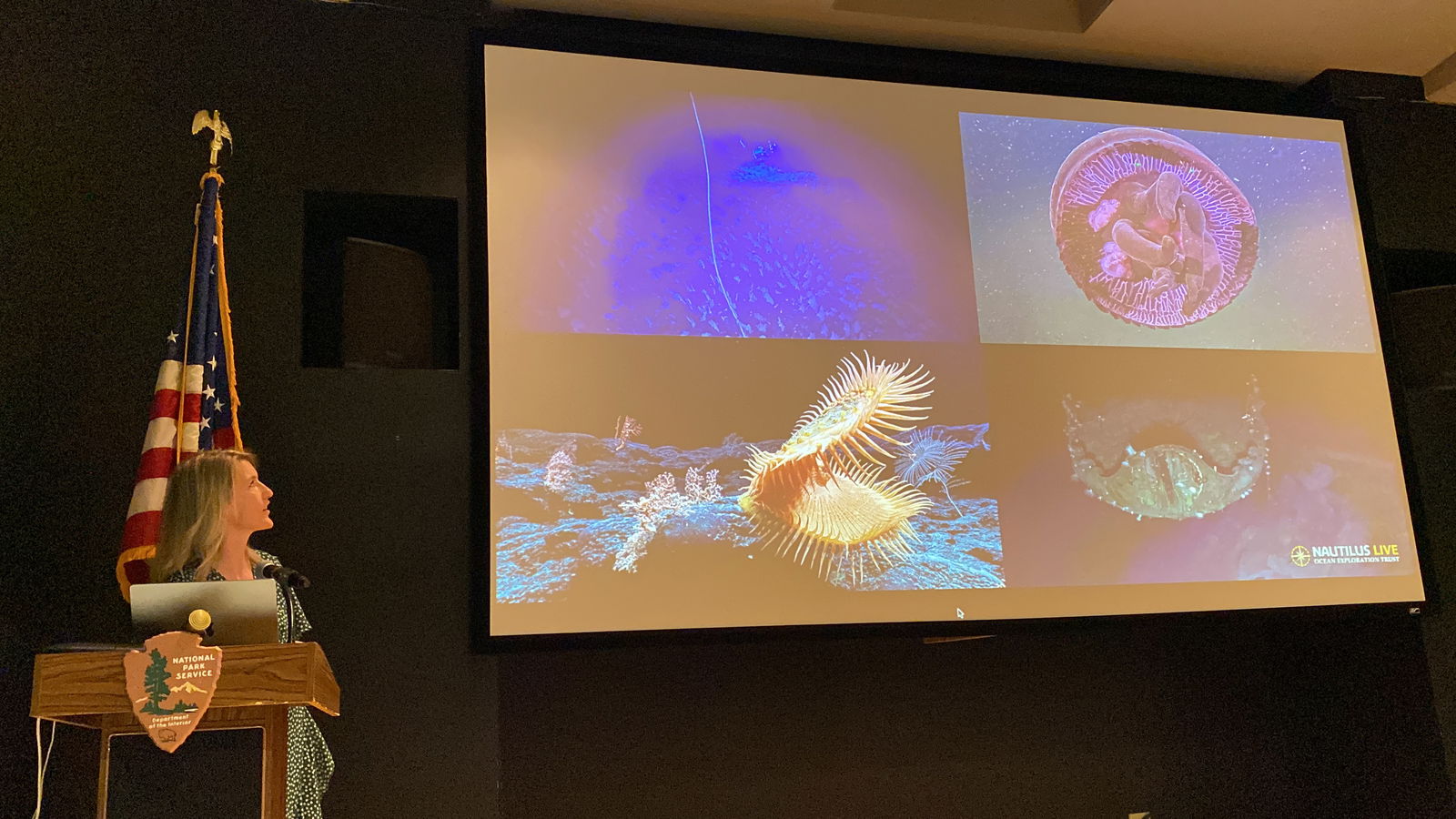
The crew aboard Nautilus expects to make new discoveries in the waters off the Marianas this summer.
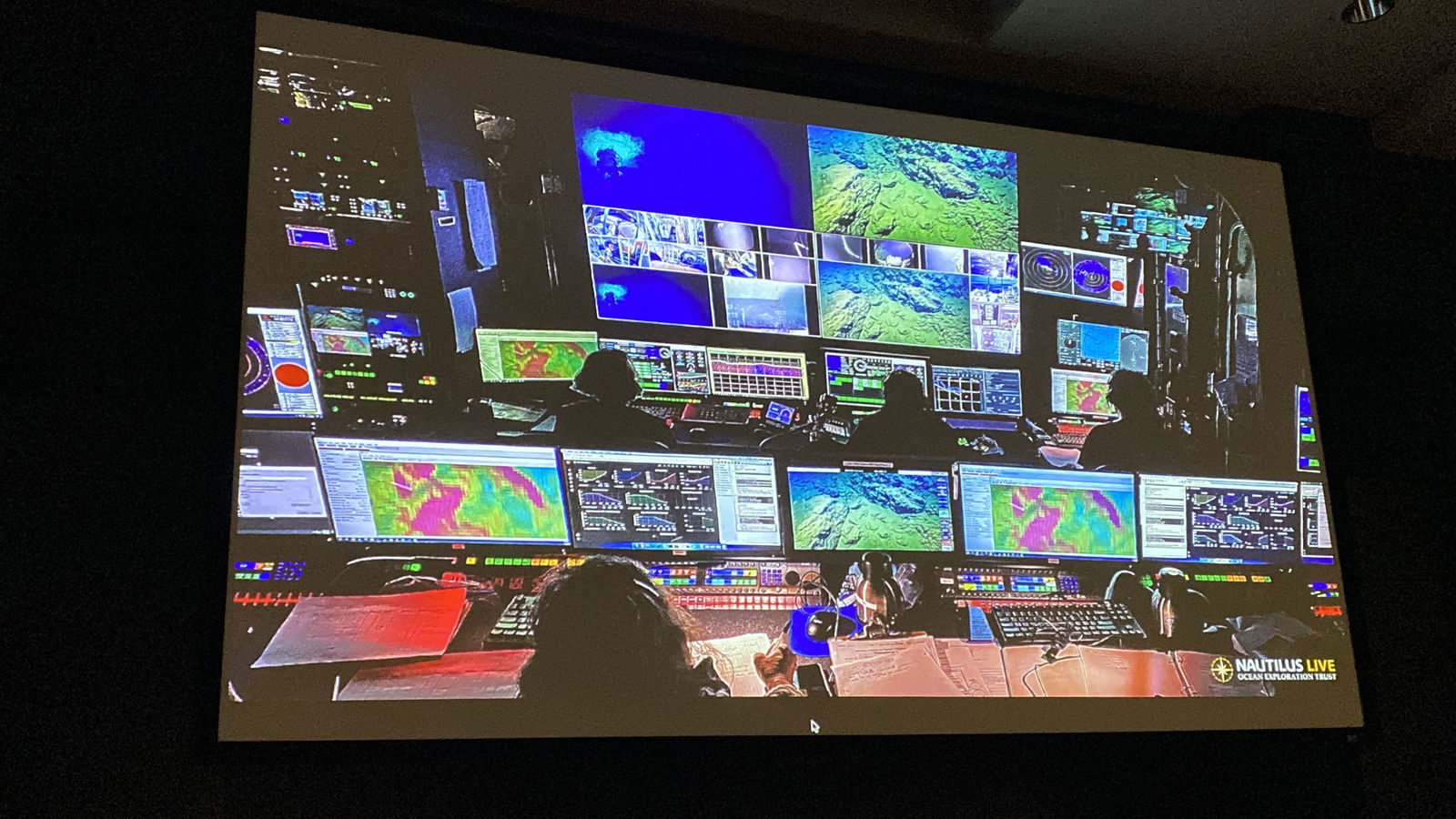
The Nautilus has a control room where people around the world can view the ship’s operations 24/7.










